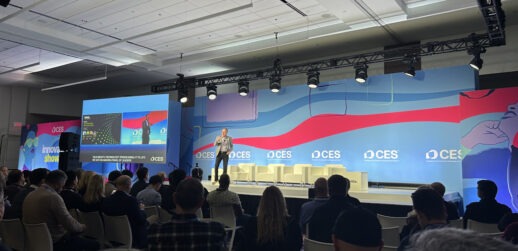At Destinations International’s 2019 Annual Convention at America’s Center in St. Louis this week, the organization for the development of destination managers focused on evolving and elevating to make everyone feel included. After all, destinations can best serve event professionals and their attendees when all resources in a community are represented.
More: Destinations International and PCMA Team Up to Bring Planners and CVBs Together
A Strong Position
The year 2018 was big for Destinations International. Outgoing chair William Pate, president and CEO of Atlanta Convention & Visitors Bureau, proudly announced that the organization retired $2.1 million in debt and completed its third clean audit in a row. This was achieved through the establishment of a new dues structure and increase in partnerships. “We are on a strong financial footing,” he announced.
Here's an historic view (courtesy of @OttawaKD) of the joint venture agreement being signed by #PCMA Pres & CEO @SherrifK and Don Welsh of @destintl! #AC19StLouis pic.twitter.com/PYoIa5Vyux
— PCMA (@pcmahq) July 23, 2019
At the same time, the organization grew. In 2018, 45 new domestic and five new international members joined. The group is now 563 destination organization members strong and has a 96 percent membership retention rate.
More Educational Opportunities
Incoming chair Craig Davis, president and CEO of Visit Pittsburgh, pledged a focus on education. He is an instructor in the leadership course, and pointed to record attendance at the summits and certified destination management executive courses. The destination marketing accreditation program is growing with a new category for those who have qualified “with distinction.”
Our incoming board chair, Craig Davis, just barely edged out past chair William Pate in the @TripAdvisor Packathon! Thanks for participating! #AC19StLouis pic.twitter.com/TJUaF6JI3w
— Destinations International (@destintl) July 25, 2019
Reducing Bias
Destinations International took time at the gathering of more than 1,000 destination leaders to shine a light on the importance of developing a culture of real inclusion. Al Hutchinson, president and CEO of Visit Baltimore, explained that “diversity” means everyone is welcome, “equality” means equal access for all and “inclusion” requires that everyone’s perspective and circumstance is considered.
Keynote speaker Arwa Mahdawi, a diversity consultant, explained the difference between going through the motions and really leveraging the power of letting everyone contribute in their own way. “Tokenism is diversity without inclusion,” she said.
How can we finally move beyond talking about inclusion without resorting to a rent-a-minority startup? @ArwaM says just streamlined hiring to make more efficient and fairer has side effect of overcoming unconscious bias. #Raise the bar #AC19StLouis #MeetSmart #transparency pic.twitter.com/8LtHeJXtBa
— JT Long (@SmartMtgsJT) July 25, 2019
“We have to start by reducing unconscious bias,” Mahdawi said. The challenge is that humans are wired to look for the familiar, and even taking people out of the equation isn’t a silver bullet because software developers have coded biases into artificial intelligence hiring systems in many cases.
The secret is to streamline the recruitment process and as a result, remove the tendency to insert preferences. “By making the system faster, more efficient and fairer, it actually tends to increase diversity. Contrary to the argument, you are actually raising the bar by removing the biases that work in favor of white men named John,” she said.
Mahdawi stressed the importance of being transparent about efforts, being honest and constantly reviewing whether the push to include more points of view is working and if people are staying. “Be patient; it takes time. Remember, it is about numbers. It’s about making everyone feel welcome,” she concluded.




